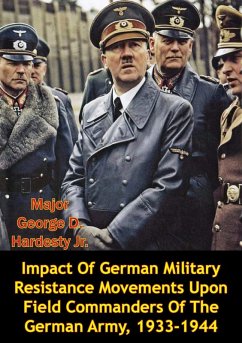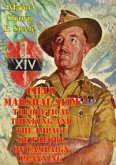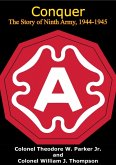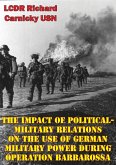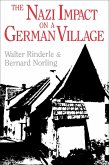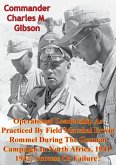A revolutionary tradition did not exist in the Imperial German Army. But during the years 1918-1944 events occurred which produced such an impact on the moral fibre of the German Officer Corps that eventually a few of them participated in a conspiracy against Hitler. This work seeks only to throw light on those aspects of German military history that portray the gradual disintegration of the monolithic structure of the German Army that occurred prior to 20 July 1944.The study has been divided into four major parts: the revolutionary days following the defeat of World War I, 1918-1920; the development of the Reichswehr and the rise to power of Hitler, 1920-1933; the transition from Reichswehr to Wehrmacht, 1933-1938; and the period of active opposition to Hitler, 1938-1944. The analysis, generally, follows a chronological course, and results in an examination of those events which influenced the German officers who were the field commanders of World War II.In this tragedy, it would appear that the German Officer Corps was less to blame for its actions-or lack of action within the broader framework of the German nation-than has often been believed to be the case, primarily because the actions of the officers were often the result of factors beyond the control of soldiers. Such a conclusion may be at variance with that of other writers on the subject. The weight of evidence examined, however, will not support a different conclusion, particularly when one analyzes the conduct of tactical units at Field Army and lower echelons of command.In this century the soldiers of the German Army have undergone two severe tests. It remains only for history to establish the answer to this question: Has this been the German Army's guilt or the German Army's fate?
Dieser Download kann aus rechtlichen Gründen nur mit Rechnungsadresse in A, B, BG, CY, CZ, D, DK, EW, E, FIN, F, GR, HR, H, IRL, I, LT, L, LR, M, NL, PL, P, R, S, SLO, SK ausgeliefert werden.
Hinweis: Dieser Artikel kann nur an eine deutsche Lieferadresse ausgeliefert werden.

